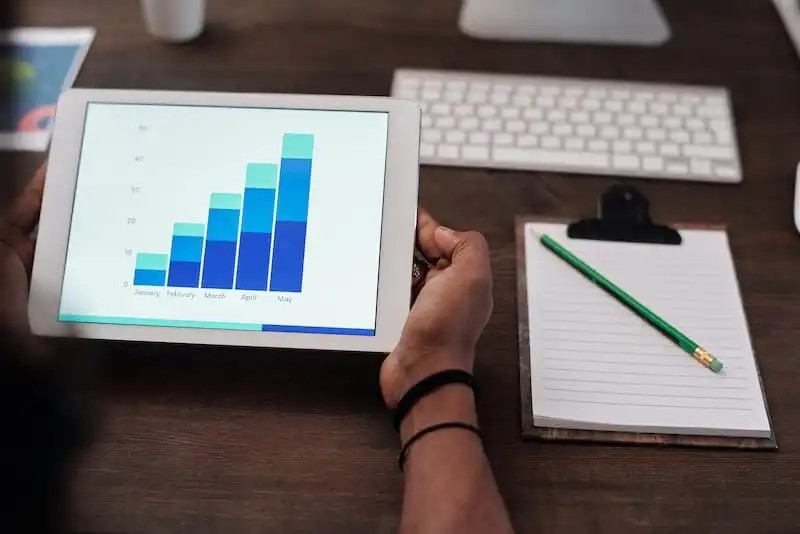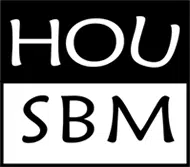There are many different factors that influence your online placement. Working with an experienced SEO firm can help you to outrank your competitors and get seen by online users that have shown an organic interest in the products and services offered by your company. Call us today to schedule a free consultation and website audit, so we can tell you what it will take to improve your online rankings and get top placements on major search engines like Google.
On-page Google ranking factors
1. Relevant, high-quality content
The single most important Google ranking factor is the quality of your content. This correlates to the consistent publication of high quality content, user engagement, and niche expertise in the chart above. So what makes relevant, quality content?
- It’s trustworthy. The information is in-depth, accurate, useful, and free of spammy links and/or comments.
- It’s readable. That means organized logically, written conversationally, and not stuffed with keywords (Google will actually penalize you for this). Incorporate it naturally into your page and use it interchangeably with related keywords.
- It’s fresh. Even the most evergreen content loses relevancy over time. So in addition to writing net new content, you should also be updating outdated pages with new information and new keywords that are relevant to today. This is the key to maintaining a good freshness score.
- It matches the intent of the keyword. In addition to using keyword research tools to find out what your ideal audience is searching online, make sure to search the keyword on Google itself to make sure you understand what users are seeking when they perform that search.
2. Keyword placement
Once you know which keywords you want to rank for, it’s important to insert them into specific places on your page. This includes:
- Title tag: aka meta title; the title that appears on the SERP
- H1 title: title that appears on the page
- H2 headings: aim for at least two
- URL: keep your URL short and clean as well.
- Naturally in the body: and also in the first 100 words
Meta description: the blurb that appears below the title tag/meta title. Make sure it accurately sums up your page and gives searchers a reason to click. Google doesn’t always use the meta description you provide, but it’s still important to include.
3. Image optimization
This is an important one—not only because of Google image search but also because regular search results are getting more and more visual—especially on mobile. Here’s how to optimize your images for SEO:
- Assign alt text: This is the text alternative of an image, and the only way that Google can “see” them. Be short but descriptive and include the keyword. This also makes your website accessible to visually-impaired readers who rely on screen readers to browse the internet, and will show if the image fails to load.
- Compress and resize: Use an image compressor (tinypng is my favorite) to keep your image file sizes to 70-100KB or less if you can. Often, saving as JPG instead of PNG helps. Also, images rarely need to be more than 1,000px wide. Though a responsive website will resize the images automatically, the less requests your site needs to make to the server, the better for page speed.
- Add value: If you can, avoid using empty stock images and graphics in your blog posts and instead use screenshots, examples, charts, and illustrations that depict concepts. This improves the quality of the content and keeps users engaged longer.
- Include the keyword: Not just in the alt text, but the file name. And replace spaces with dashes in the file name, otherwise your CMS will replace them with “%20” which creates an untrustworthy-looking image link.
4. Niche expertise
It’s not just the quality of your content that indicates expertise in your niche, but also the quantity of that quality content. For example, WordStream has been publishing high-quality content about PPC for a long time now, so Google has come to see us as a trusted source in this niche. But if we were to publish a super high-quality post about, say, robotic process automation, our chances of ranking for that keyword are slim.
To build out your niche expertise, you can use the hub and spoke method (also known as pillar page and cluster content). With this method, you create a hub/pillar page on a particular topic, usually a broad, high-volume keyword. This serves as the main resource for that topic, and your various H2s cover different child keywords within that topic.
Then you have your spokes, or cluster content, which are the additional pages that dive deeper into each of the aspects (child keywords) covered in the pillar page.
5. Page speed
Users expect a pain-free browsing experience, which is why page speed is an important ranking factor. If your pages take too long to load, your bounce rate will increase and your ranking will decrease.
When you are ready to take your business to the next level, the team at HOUSBM is here for you. We work on perfecting the factors that influence your online placement to ensure success for your company.
SEO Marketing For Businesses in Houston, TX
Your website is more than an extension of your business, it is often your first chance to make a lasting impression on potential customers. Our team helps you to optimize your website so that you do not fall behind your competitors. As the gap increases between the amount of effort your competition puts into their online marketing and how little work you put into your website, the more difficult it will become to engage with customers online.
The Houston Small Business Marketing team works hard to help your business stay relevant in this online-focused world by tracking the latest strategies in online marketing for businesses. If you are tired of giving away potential customers to your competition, we can help you.
We dedicate ourselves to working closely with business owners to come up with a marketing plan that helps them succeed. We provide each customer with a free consultation for your website and social media to let you know how you can improve your ranking and reach your goals.
Houston Small Business Marketing
713-492-0025
1415 North Loop West #950
Houston, TX 77008
View our Website
View our Facebook Page
View our Google Listing


